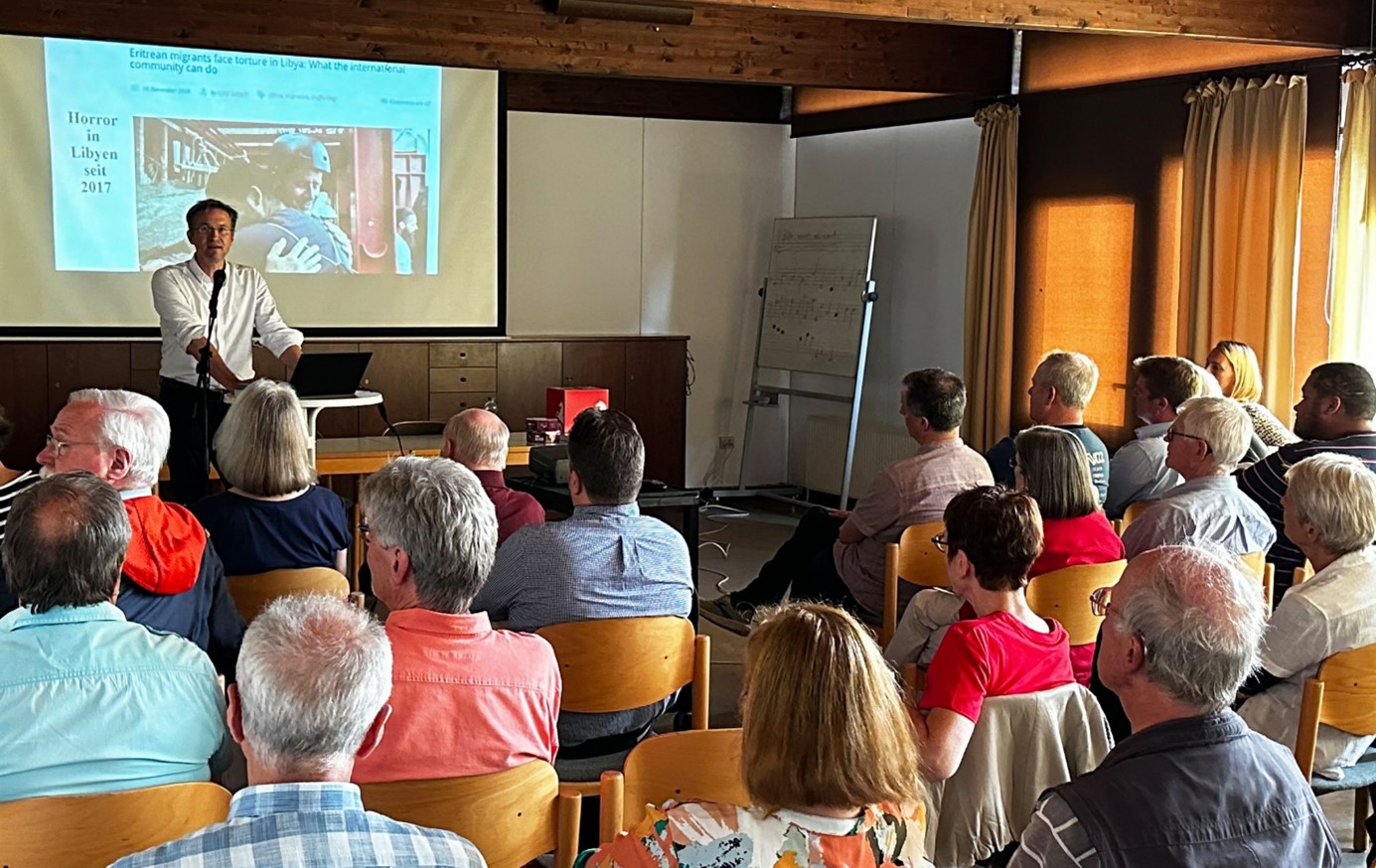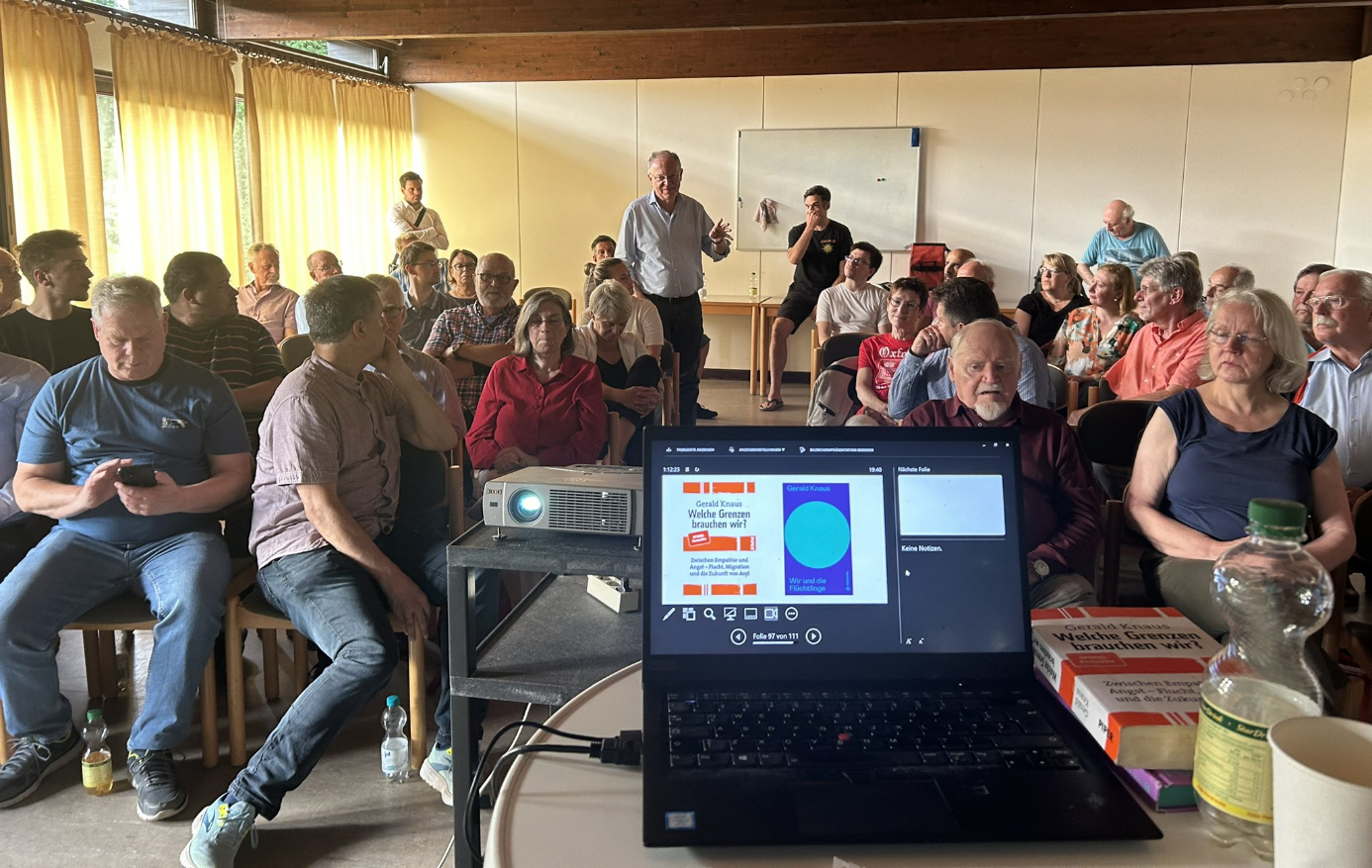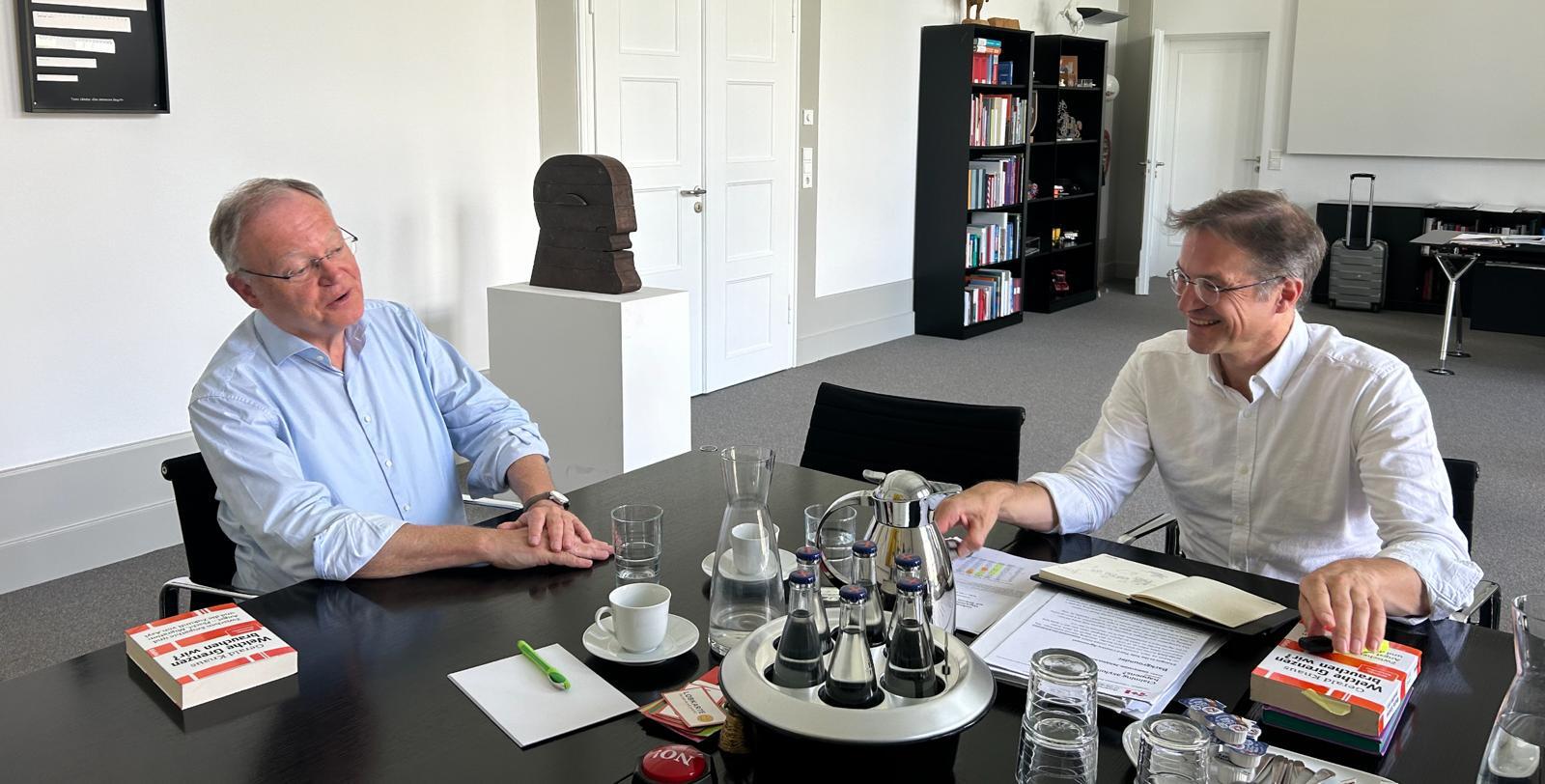Hannover – Challenging fear and racism: ESI on a humane migration policy for Europe

ESI’s Gerald Knaus was invited by Hannover’s local SPD branch to give a presentation titled “Koalition für humane Kontrolle und Rechtsstaatlichkeit” – or “Coalition for human control and rule-of-law.” He emphasised the need for humane and lawful approaches to better manage migration on Europe’s borders.
Gerald discussed the daily deaths at the EU’s external borders, calling it the world’s deadliest border. The loss of life in the Mediterranean is alarming, with 28,000 deaths over the last decade, 3,900 in 2023, and more than 1,300 so far in 2024. Gerald described the violence faced by migrants in Libya and Tunisia, and noted similar behaviours by European states, including Hungary, Finland, Lithuania, Poland, and Croatia, which push migrants back from their borders in violation of international humanitarian law.
Gerald argued that these extreme measures have not helped Europe control migration and that the perceived loss of control has instead generated widespread fear. This fear is exploited by far-right parties, threatening European liberal democracy. He criticised the racist ideas of the so-called “great replacement,” a far-right narrative that is dangerously successful and poses significant threats.
However, he asserted that humane control is possible, citing the 2016 EU-Turkey Statement, which drastically reduced deaths in the Aegean Sea, as an example. He also advocated for agreements with safe third countries to host refugees, allowing Europe to resettle them directly and avoid dangerous sea crossings.
Additionally, Gerald addressed the need for legal migration, highlighting the Canadian model’s effectiveness. He criticised so-called “remigration” as advocated for by the far-right, which legitimises ethnic cleansing. Instead, he emphasised the moral, political, and humanitarian goals of reducing irregular migration and increasing regular migration, as outlined in the German government’s coalition agreement. He concluded that such plans would protect migrants, reduce far-right influence, and enrich European cities with diverse, qualified migrants.
The event also featured a surprise guest, Stephan Weil, the state premier of Lower Saxony, who participated in the evening discussion.

Earlier that day, Gerald had already met with Stephan Weil to discuss ESI's ideas on managing migration in a humane, controlled way.

- ESI proposal: Safe Third Country Agreements
- ESI proposal: EU-Turkey Statement 2.0
- WDR Aktuelle Stunde, Studiogespräch: Gerald Knaus, Migrationsforscher, ("Studio interview: Gerald Knaus, migration expert"), 21 June 2024
